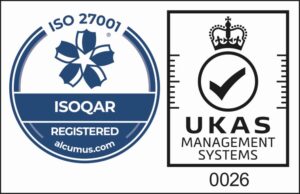Leveraging IT MSPs for Network Security and Threat Management
In today’s increasingly interconnected and digitized world, network security is paramount for businesses to protect their valuable data, systems, and customer information. However, managing network security and staying ahead of evolving threats can be a complex and resource-intensive task. This is where IT Managed Service Providers (MSPs) play a crucial role. MSPs specialize in network security and threat management, helping businesses fortify their networks, detect and respond to threats, and ensure a robust security posture. Let’s explore the benefits of leveraging IT MSPs for network security and threat management:
Expertise and Specialized Knowledge
IT MSPs have a team of network security experts who possess deep knowledge and expertise in the field. They stay updated with the latest cybersecurity threats, attack vectors, and industry best practices. MSPs bring specialized skills in areas such as firewall management, intrusion detection/prevention, vulnerability assessments, and security incident response. Their expertise ensures that businesses have access to cutting-edge security technologies and strategies.
Proactive Threat Detection and Prevention
MSPs deploy advanced security tools and technologies to monitor networks and detect potential threats in real-time. They utilize intrusion detection/prevention systems (IDS/IPS), next-generation firewalls, and security information and event management (SIEM) solutions to identify and respond to suspicious activities. MSPs implement proactive measures such as network segmentation, access controls, and vulnerability scanning to prevent attacks before they can cause damage.
24/7 Security Monitoring and Incident Response
MSPs operate Security Operations Centers (SOCs) that provide round-the-clock monitoring, threat intelligence, and incident response services. Their SOC teams continuously monitor network traffic, analyze security logs, and investigate any potential security incidents. In the event of a security breach or incident, MSPs follow established incident response procedures to mitigate the impact, contain the breach, and restore normal operations.
Security Patch Management
MSPs handle security patch management to ensure that network devices and systems are up to date with the latest patches and updates. They regularly assess vulnerabilities and apply necessary patches to safeguard against known exploits. MSPs take a proactive approach to patch management, minimizing the risk of vulnerabilities being exploited by cybercriminals.
Security Policy Development and Compliance
MSPs assist businesses in developing comprehensive network security policies and procedures that align with industry best practices and regulatory requirements. They work with businesses to establish security controls, access privileges, and password policies. MSPs conduct regular security assessments, penetration testing, and vulnerability scans to identify gaps and ensure compliance with relevant standards and regulations.
Threat Intelligence and Risk Analysis
MSPs provide threat intelligence services, gathering information about emerging threats and the latest attack techniques. They analyze threat data and provide insights to businesses on potential risks and vulnerabilities in their network environments. MSPs conduct risk assessments to identify critical assets, evaluate risks, and develop strategies to mitigate those risks effectively.
Employee Education and Awareness
MSPs recognize that employees are an integral part of network security. They provide education and awareness training to employees on best practices, security policies, and potential threats. MSPs conduct phishing simulations, security awareness campaigns, and training sessions to enhance employees’ understanding of security risks and their role in maintaining network security.
Compliance and Reporting
MSPs assist businesses in meeting regulatory requirements and reporting obligations related to network security. They help implement controls and processes to ensure compliance with standards such as PCI DSS, GDPR, HIPAA, and others. MSPs generate regular security reports, providing insights into network security posture, threat activity, and compliance status.
By leveraging IT MSPs for network security and threat management, businesses can enhance their overall security posture, detect and respond to threats more effectively, and reduce the burden on internal IT teams. MSPs bring expertise, advanced technologies, and proactive security measures to safeguard networks against evolving threats. With the support of MSPs, businesses can focus on their core operations, knowing that their networks are protected by experienced professionals dedicated to maintaining a secure environment.




